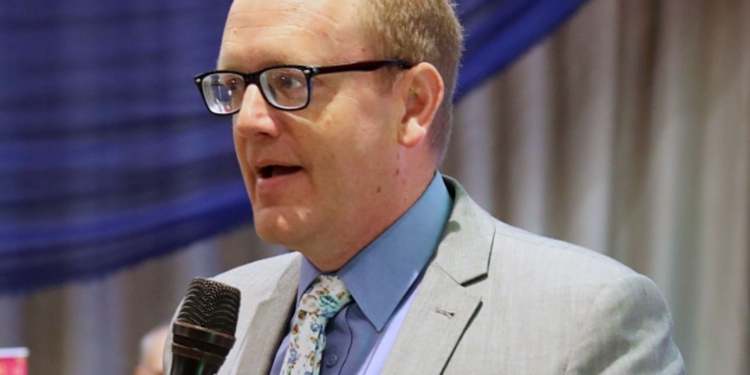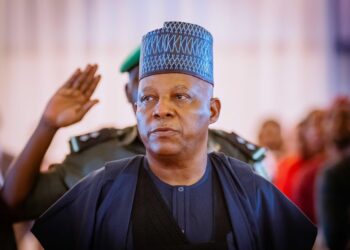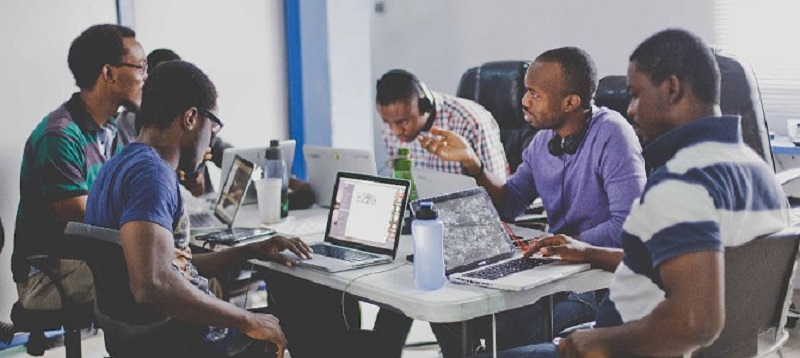The United States Consul General in Nigeria, Will Stevens, has disclosed that 80% of Nigerian startups are incorporated in the U.S. as he emphasized the critical roles being played by the country in Africa’s digital space.
Stevens made this known on Friday at the Global Tech Africa Conference held in Lagos. At the continental level, he said up to 60% of African startups are incorporated in the U.S., which explains the increase in venture capital investments in the continent’s startups.
According to him, the U.S. private sector plays a vital role in promoting technology in all sectors of the African economy.
He added that U.S. venture capital firms are investing heavily in African tech startups with over 60 and 40% of venture capital funding in Nigeria and Africa respectively coming from the United States.
Incorporation and funding
Highlighting the role of the U.S. private sector in the continent’s startup ecosystem, the Consul General said:
- “Up to 60% of African startups are incorporated in the United States – this figure is 80% when considering Nigeria alone. In 2021, African startups raised $4.8 billion, this translates to an average of over $1 million every 2 hours! The United States accounted for over 40 percent of Africa’s VC funding in 2022 with over $2 billion injected into local startups. This year, while VC investments are globally on a decline, U.S. investors like Techstars, Y-Combinator, and 500 have closed over 100 major deals within the first 9 months of the year.”
- “By these numbers, it is indicative we have a strong interest in supporting the growth of the digital economy of the continent, and clearly, Nigeria is a key market. As a whole, the U.S.-Africa startup/venture capital scene continues to be an immensely important mutually beneficial bilateral corridor. At the Consulate here in Lagos, we work with numerous startups to facilitate their participation in incubator and accelerator programs, thereby connecting these Nigerian startups with global markets,” he added.
Commitment to tech in Africa
Reiterating the commitment of the American government to technology development in Africa, Stevens said the US is using the latest technological innovations to address some of the continent’s most pressing challenges, in the areas of education, healthcare, agriculture, and other vital areas of development and economic growth.
Specifically, he said the U.S. is working with Nigerian partners to develop electronic health records systems, train healthcare workers on how to use technology to deliver care and provide Nigerians with access to affordable medicines and vaccines.
- “Nigerian health technology companies such as Healthbotics and Helium Health have leveraged our programs and access to the United States to develop genius technologies that improve the overall healthcare system for underserved communities in Nigeria.
- “Additionally, the United States remains the largest single donor of bilateral aid to health in Nigeria, providing funding for primary healthcare programs, water and sanitation activities, infection prevention and control, malaria, HIV/AIDS, and general health assistance totaling over $15 billion in the last 20 years,” he said.
He added that the United States believes that a digital transformation is underway in Africa, hence, it is consciously seeking to bolster its collaboration with those involved in the digital space.























Nigeria is not a better place to stay
The Nigerian government & investors should focus on finding the startups that have been registered in Nigeria then giving funding to startups registered in other countries
NONE of the successful startups in Nigeria are funded by the Nigerian government.
The Nigerian government & investors should focus on funding the startups that have been registered in Nigeria then giving funding to startups registered in other countries
Of course, most of them are incorporated in the US (usually Delaware, to be specific) because a lot of their seed and early-stage capital comes from the US and abroad – and those investors want to ensure they are being protected by a legal system and by courts that are not placed at the services of the highest bidder!
PS: Btw, it’s not just Nigerian startups. Most Venture Capitalists and Funds insist that the IP of startups they fund are owned by Delaware corporations (usually holding companies).
Anyone that has tried to start a company that is supposed to service customers internationally will find the incorporating in Nigeria limits your access to international markets and financial systems. I see this as a form of enslavement. I can’t blame anyone but our government. To get credit via even PayPal for a Nigerian enterprise is impossible.